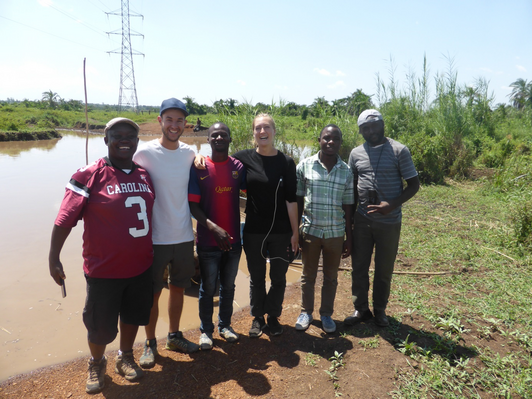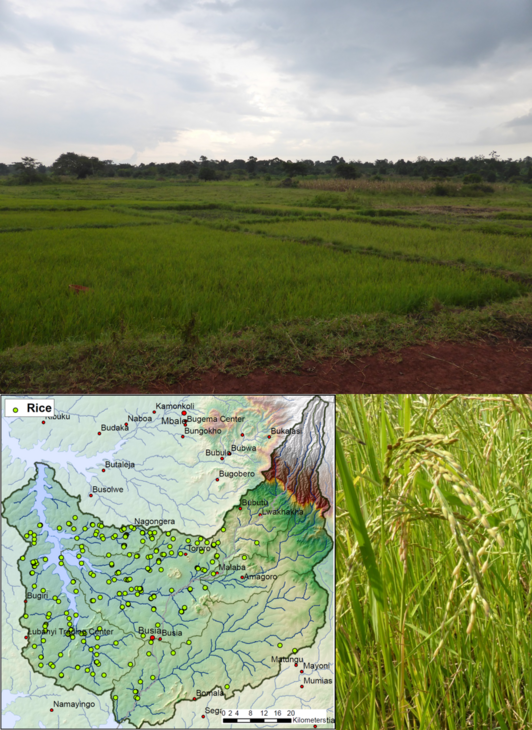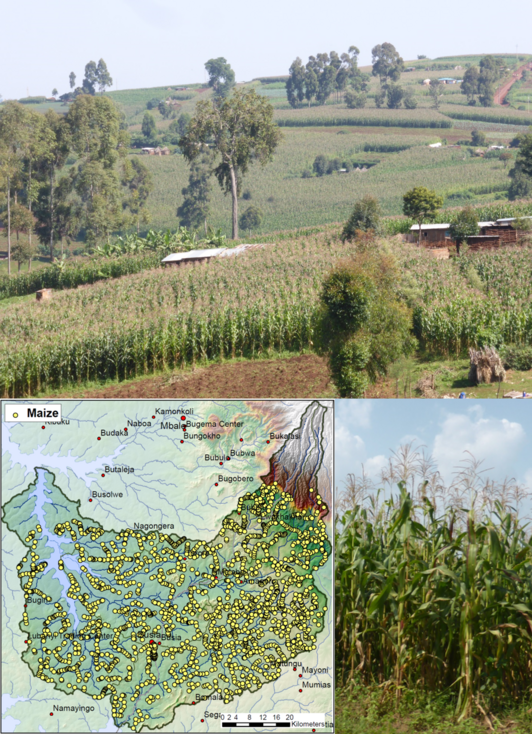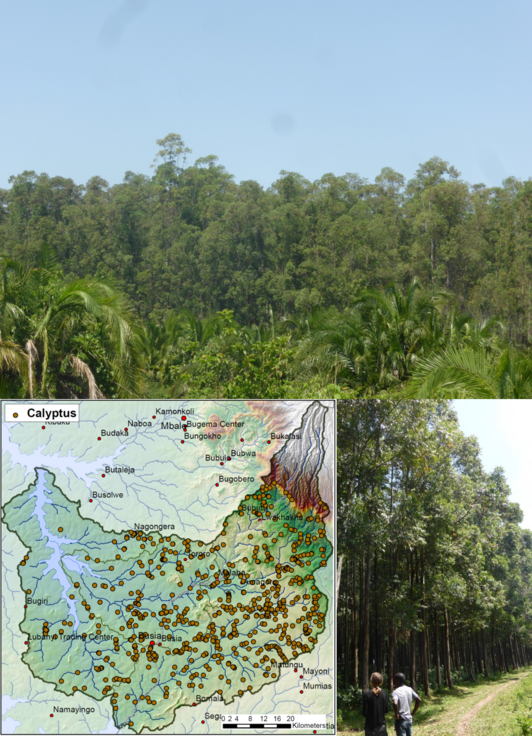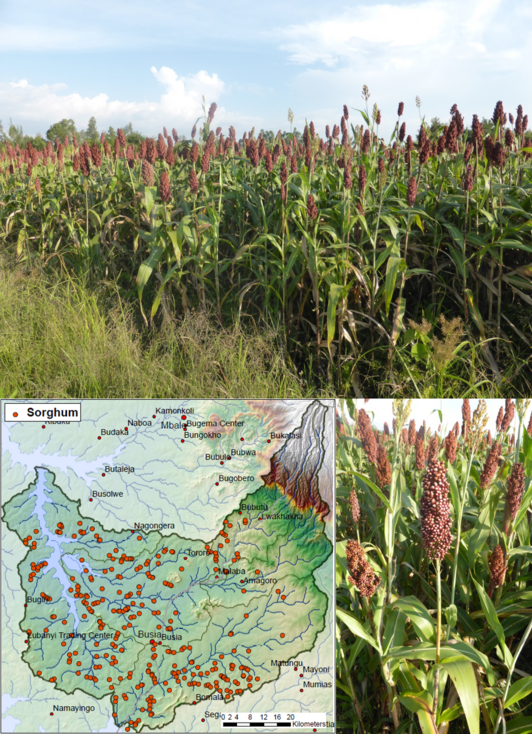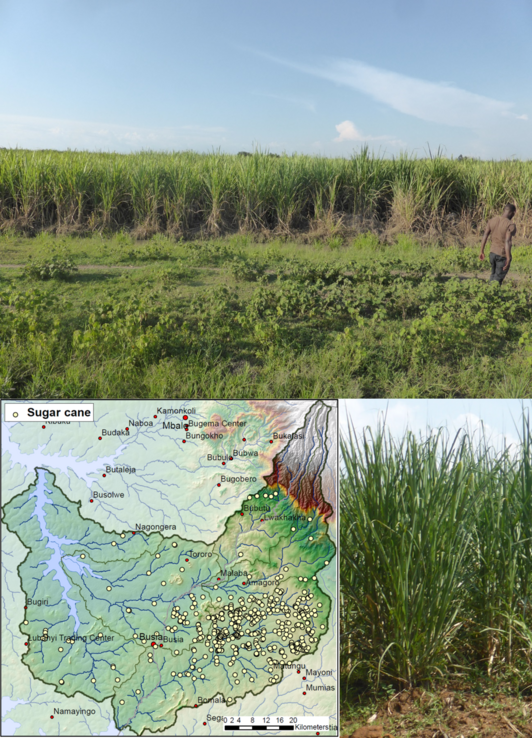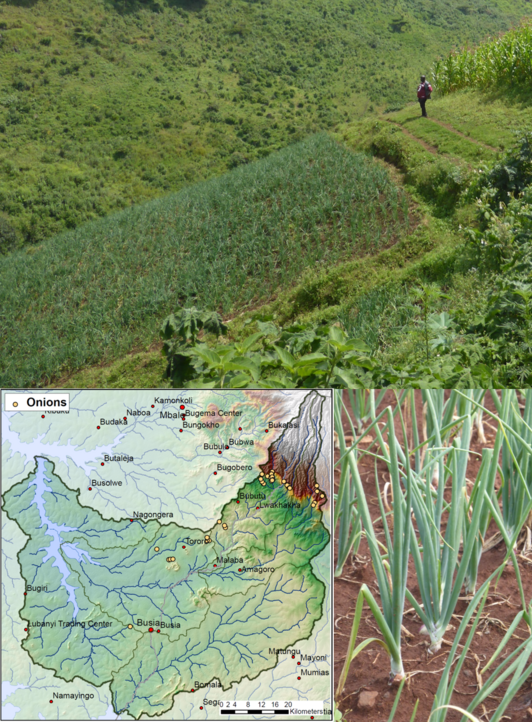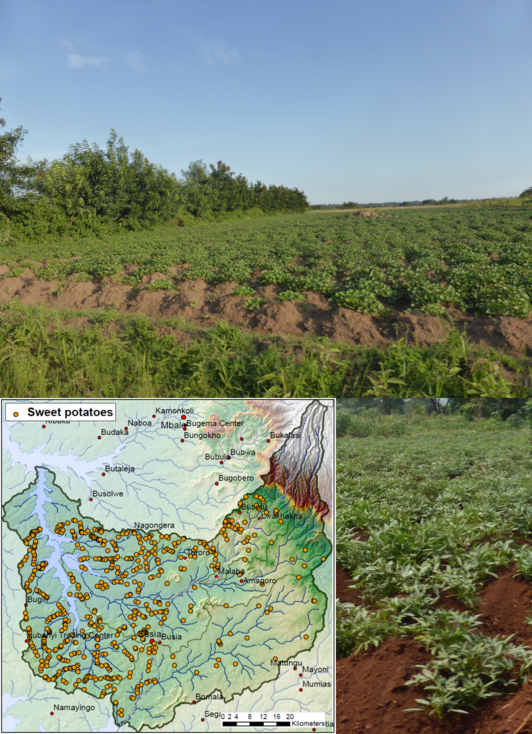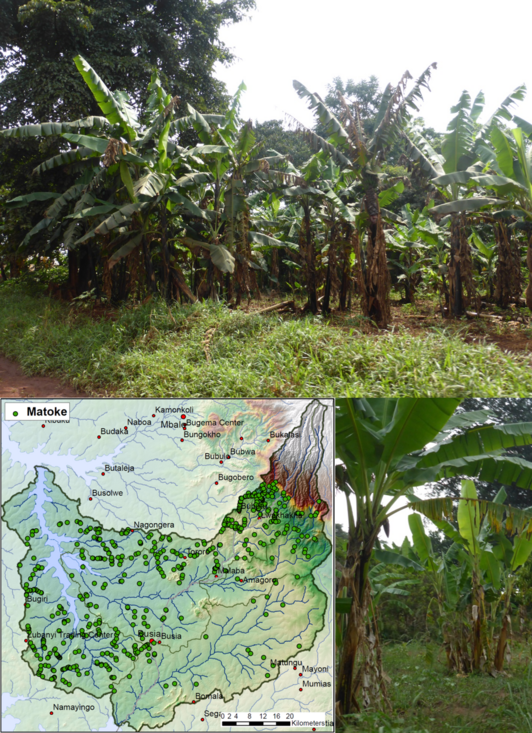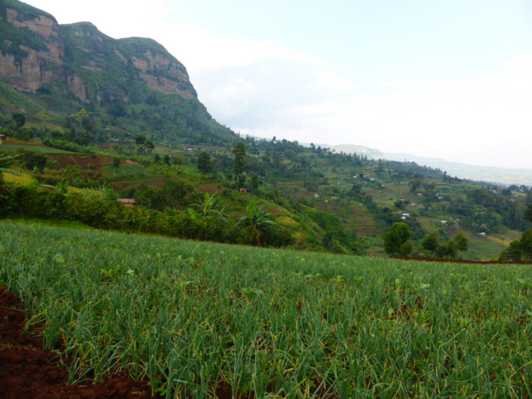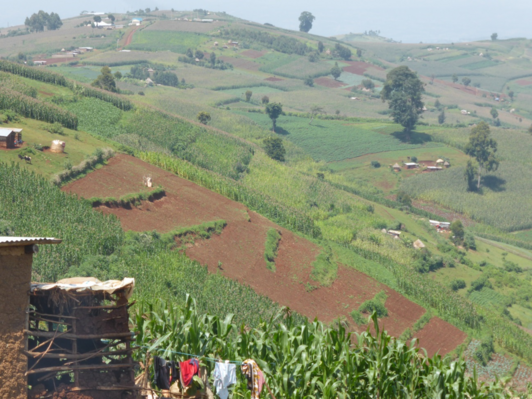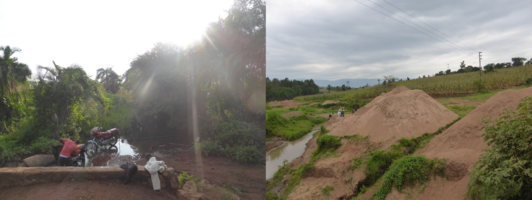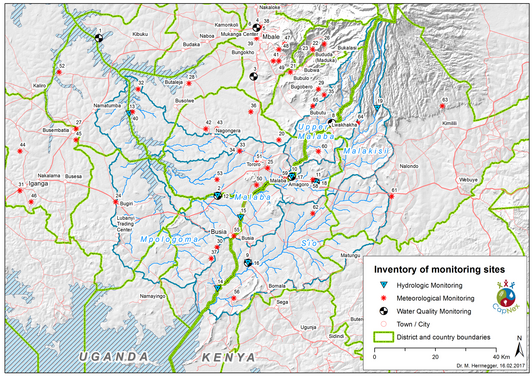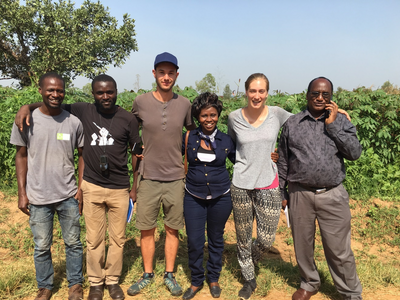

During the one month field study, data for the academic partnership project “Capacity building on the water-energy-food security Nexus through research and training in Kenya and Uganda (CapNex)” was collected. The aim of the CapNex project is to strengthen the capacities of young researchers from Kenyan, Ugandan and Austrian Universities to cope with challenges associated with water quality and quantity, energy provision and food security.
After visits of the Austrian students at TU-K in Nairobi and Makerere University in Kampala, the project team members from the three countries met in Busia at the border between Kenya and Uganda on 12th of June for planning and coordination of the fieldwork.
One group extensively travelled through the basin area and collected land use and land cover data. Additionally, farmers were interviewed about farming practices and severe cases of erosion, soil profiles and characteristics were documented. A second group of the team explored the basin to find river cross-sections where systematic water quality measurements will be performed. Water samples for the further analysis of the water quality were also taken. Additionally, team members visited relevant authorities in Busia, Kakamega and Entebbe to request historical meteorological and hydrological data. The joint field trip also enabled the knowledge transfer and interaction of the students and scientists from the different universities.
The data and evidence collected in the scientific expedition will be used for the analysis and models applied within the CapNex project. For example, the data collected on land use and land cover will be used to derive a detailed map of the land use in the study area on the basis of automatic classification of Sentinel and Landsat satellite images. Data on water quality as well as hydrological data will be used to verify the models applied by the students in the different case studies.

